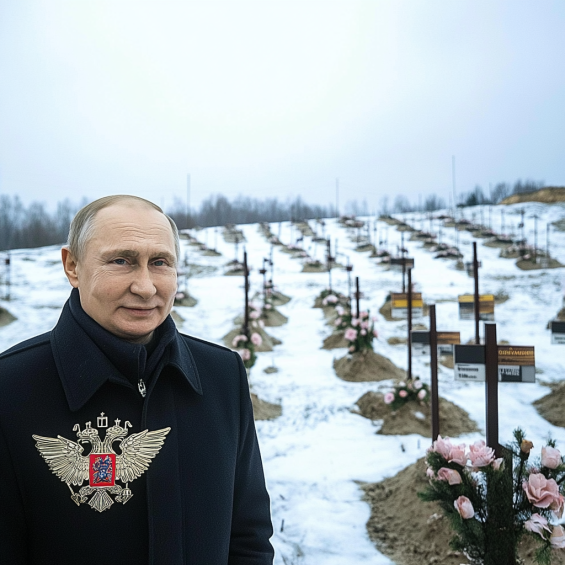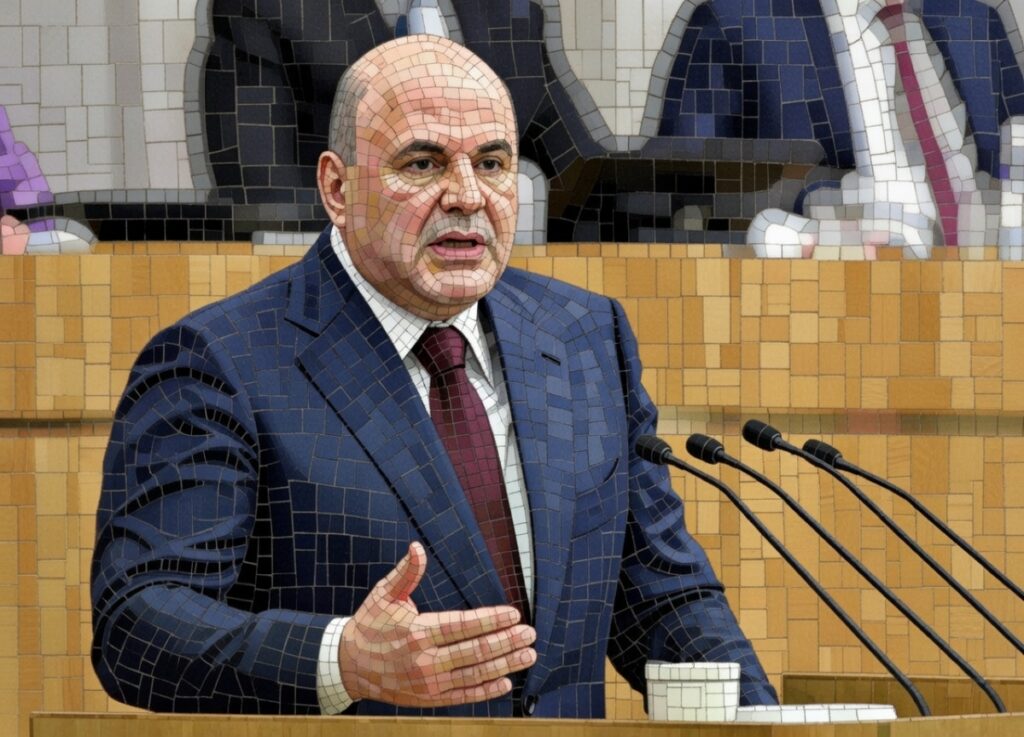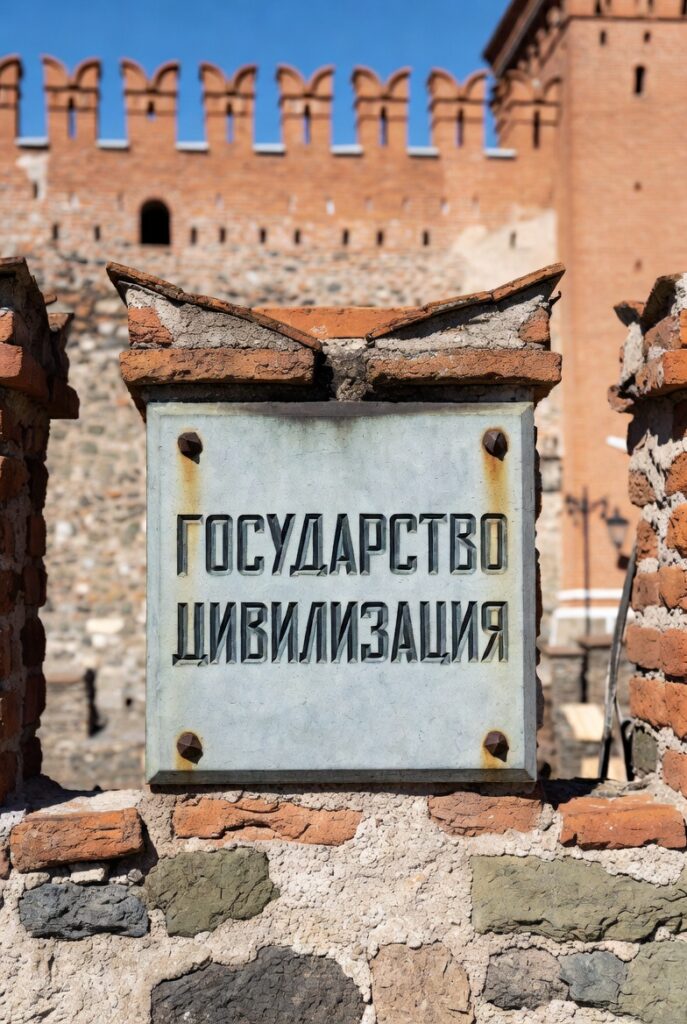Vladimir Putin held his annual press conference, which for several years has been combined with the televised question and anwser event called «Direct Line with Vladimir Putin». After the merger, these events, which had previously not promised any sensations, have lost all meaning except for the entertainment of the president himself. The organizers, represented by the information and political blocs of the presidential administration, show Putin the «volk», thenarod that he wants to see at the moment. At the moment, the Russian leader is preoccupied with the war, so one of the people who hosted the event was military correspondent Dmitry Kulko, and the subject of the war clearly prevailed over others. The only uncomfortable and unexpected question came from American journalist Keir Simmons of NBC: «You failed to achieve the goals of the „Special Military Operation“. Many Russians have lost their lives, including a general assassinated here in Moscow this week. The head of Syria… was removed from power. Mr President, when you meet President Trump, you will be a weaker leader. What will you do? What will you be able to offer as a compromise?», he asked Putin.
Putin was clearly annoyed by the question, but he did not drop his up-beat attitude. The president assured that Russia has achieved all its goals in Syria, although keeping Assad and his entourage in power was recently spinned as the Russian army’s goal in the Syrian war. Putin also added that the Russian army is stronger than ever, although in reality it is suffering losses in manpower and machinery. The tone of Putin’s response to Simmons’ question was in keeping with the spirit of Putin’s typical «ultra-optimism» in recent years and the general tone of the Russian president’s interactions with the press and citizens. The head of Russia enjoyed talking about the growth of the Russian economy, the problems of the Western economy, and low unemployment rate, without mentioning that low unemployment really reveals personnel shortages and that the economy is growing at the expense of military budget expenditures.
It cannot be said that the organizers of the event completely forgot to discuss the social problems that according to polls Russians are concerned about (above all, the inflation). The president’s answers hardly helped relieve tension and could not have satisfied the audience. Putin blamed rising prices on rising wages and increased demand, adding that Russians’ real incomes are growing faster than inflation: «Rising prices are an unpleasant and bad thing in fact. But I hope that, by generally maintaining macroeconomic indicators, we will cope with this too.» He also spoke about the possible timeline for the end of the war in terms that were similarly vague and could not even offer a more straightfoward forecast for when the AFU will be pushed from the Kursk region. Of course, he could not help but mention the problems of certain people (such as a German immigrant struggling to obtain Russian citizenship), which officials promised to resolve quickly after the press conference.
However, the last spectacle of Putin’s communication with citizens showed unprecedented freedom and directness of Putin’s statements. For example, he described the war as «some hullabaloo» born of boredom. «You know, when everything is calm, measured, stable, we are bored. Stagnation. We want some action, some hullabaloo. As soon as this action starts, everything starts whizzing pass your head: both the seconds and the bullets. Unfortunately, the bullets are whizzing now. We’re so scared, «it’s horrible, horrible, horrible». Well, ‘it’s horrible’ all right. But its’s not «horrible, horrible, horrible». Putin told the audience. He quite seriously proposed to the Western countries to conduct a ‘high-tech duel of the 21st century’: to gather modern air defence systems of NATO countries around one of the facilities in Kiev and then to hit this facility with «Oreshnik». Towards the end of the event, the president demonstrated his ability to search for pornographic films on the Internet, and even remembered ‘his little ones’, although he had previously spoken very sparingly about his family. Of course, the event was not without Putin’s signature bawdy jokes. He also kept muttering the by now usual «fucks» under his breath.
This shows that the Russian leader no longer feels like he is bound by any norms or proprieties. Putin is extremely open; he reveals his perception of the war as an exciting experience, a spectacle and even a game (hence the suggestion of a «duel»). Putin sees himself as an omnipotent world leader, a super-politician who can only be held back by adherence to proper manners. In fact, this openness to the point of cynicism makes him an increasingly toxic figure in international negotiations and events. The leaders of the major countries friendly to Russia (mainly China and India) have so far tolerated Putin’s revelations, but they are growing in number, and at some point Putin’s brashness and vulgarity will become difficult for them to tolerate. This does not mean that India or China will cut back on cooperation with the Kremlin, but public events involving both leaders are likely to become much less frequent. For the domestic audience, too, the cynical revelations combined with hyper-optimism are beginning to look strange. Putin and the public are at odds over the country’s problems, and the eccentric behaviour proves that the leader is slipping deeper into his own special world and is increasingly out of touch with reality.
Wildberries is back
Ramzan Kadyrov is back on the federal agenda, albeit without the scandalous newsbreaks that usually accompanied such returns. The head of Chechnya makes complimentary remarks about the new authorities in Syria, appears at Kremlin events (taking care to demonstrate his participation in them on social networks) and is photographed with high-ranking officials and security forces. This usually happens when Ramzan Kadyrov is in trouble and wants to draw the president’s attention to himself, or when he is trying to obtain new powers or resources from the Kremlin. By all appearances, we are now dealing with the latter. The media reported that the Chechen leader volunteered to mediate between the Russian authorities and the Syrian rebels in order to keep Russian military bases in Syria. The Kremlin needs them for its African expansion: without these bases it will be very difficult, if not impossible, to supply African groups and military companies. In return, Kadyrov is said to receive control over Wildberries and compensation from Dagestani senator Suleiman Kerimov, who was one of the overseers of the deal to merge the marketplace with the Russ Outdoor Group. This scenario seems quite logical. Kadyrov publicly pledged to oppose the merger and prevent the company’s founder, Tatiana Bakalchuk, from divorcing her husband, Vladislav Bakalchuk. He failed to do either, even after a show of force and direct threats to Kerimov and Dagestani politicians. The merger took place and Tatiana returned to her maiden name of Kim. This had seriously undermined Kadyrov’s reputation as a man who could solve any problem.
A solution to the «Syrian issue» could restore Ramzan Kadyrov’s shattered position, he would be doing the Kremlin a much-needed favour, and in return he could get a lot in return, including control over Wildberries. But this may happen after the favour has been done. However, it is still not at all clear whether or not the Kremlin’s reconciliation with the former Syrian opposition will take place, and more importantly, whether or not Russia’s military bases in Syria will remain in place. So far, the courts (and therefore the power vertical) are backing Tatiana Kim’s side, which means that Ramzan Kadyrov has not yet won the battle for the marketplace.
A victory for the Chechen leader, however, cannot be ruled out either. But in this case the Kremlin will face a serious problem. It would cease to be a guarantor of stability and redistribution of resources for the elites. It will appear that the player who is relevant here and now can get whatever he wants, despite previous agreements. This new rule will nullify all previous laws of existence of the power vertical.










